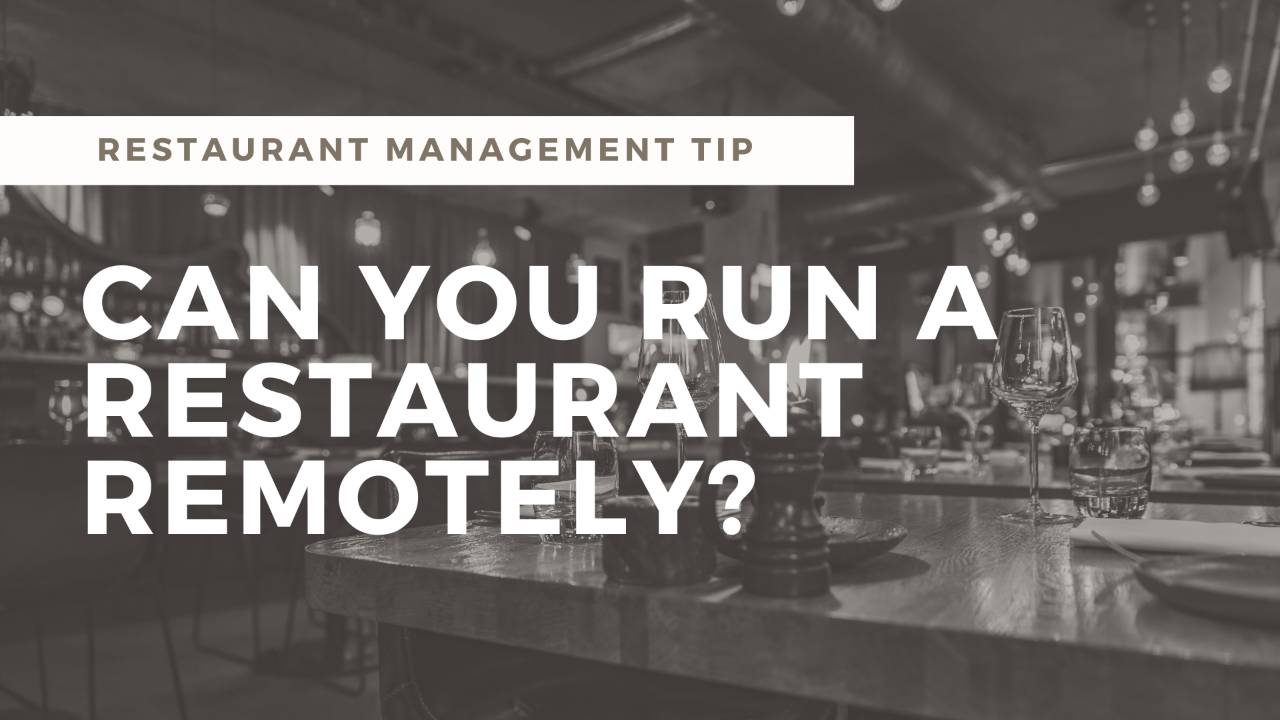Can You Manage a Restaurant Remotely?

Ever wonder if it's possible to manage your restaurant without showing up every single day? Let’s talk about what it really takes to pull it off — without sacrificing consistency, culture, or profitability. Let’s talk about what it takes to manage your restaurant remotely without everything falling apart in the process.
Let me start by saying this: the dream of managing your restaurant remotely is possible. But it only works if you put the right systems and people in place. And no, I’m not just talking about installing camera systems or checking POS sales from your couch.
I’m talking about building a restaurant that doesn’t depend on you being there to function. That takes real intention, training, and structure.
If you're thinking, “I’ve tried that and it didn’t work,” trust me — I hear you. Most restaurant owners fall into one of two camps:
- They’ve tried managing remotely and gotten burned.
- They’re terrified that if they’re not there, everything’s going to fall apart.
And the truth is, if you haven’t done the work to build a proactive restaurant culture, both fears are probably valid.
What does a proactive restaurant culture look like?
Here’s what I mean by proactive: you need to build a leadership team that knows what success looks like, has the tools to get there and is held accountable to results. That’s how you build trust — and that trust is what gives you the freedom to step away.
Let’s break it down.
- Leadership
Your managers aren’t babysitters. They need to be decision-makers. That means you have to train them how to think, not just how to do.
Walk them through real scenarios. Talk about how you approach difficult customers, how you resolve employee conflicts and how you stay on top of operations. The more they understand why you do what you do, the more they can replicate it.
When they start acting like owners, you stop having to be the only one putting out fires.
- Systems
Systems create consistency. Every task — from opening and closing duties to inventory management — should be documented. That way, if someone calls out sick, another team member can step in and do the job just by following a checklist.
These aren’t nice-to-haves. They’re essentials.
Think:
- Recipe costing cards with detailed portioning and plating
- Prep lists based on sales forecasts
- Checklists for every position
- Labor budgeting tools
- Manager log books that track everything from maintenance issues to disciplinary actions
These systems are what allow your restaurant to run the same way — even when you're not there.
- Accountability
I say it all the time: what you measure improves. Or put another way: what gets measured gets managed.
Accountability isn’t about being a tyrant. It’s about making sure your standards are upheld whether you're onsite or not.
You can’t expect what you don’t inspect.
That’s why reporting is critical. Your managers should be sending you:
- Daily sales reports
- Labor percentage snapshots
- Notes on any major incidents
You should be reviewing these with them weekly — not just when something goes wrong. That rhythm of communication builds both accountability and confidence.
- Communication
Staying connected is non-negotiable. A weekly manager meeting is the backbone of effective remote leadership. Use that time to review performance, reinforce values, coach your team and plan for the future.
Outside of that, make use of:
- Daily manager logs with notes from each shift
- One-on-one Zoom chats for development
- Good old-fashioned phone calls
Remote doesn’t mean removed. You’re still leading. You’re still in charge. You’re just doing it from a different location.
Real-life example of managing a restaurant remotely
Let me share a quick example. One of the restaurant pros I coach has three locations — but he only spends physical time in one of them each week. The rest of the time, he manages remotely. And guess what? All three locations perform well.
Why? Because he built a team he trusts, empowered them with the right systems, and stays actively involved through structured communication. He didn’t just let go and hope it would work. He holds his general managers accountable to results — not just activity.
See the difference? That’s the secret.
Final thoughts on managing a restaurant remotely
I’ll be honest — managing remotely isn’t for the faint of heart. It takes real work to get your restaurant to the point where it can operate without you being there every day.
You’ve got to let go of the idea that you need to do everything yourself. But once you do? The payoff is huge.
You get to spend more time with your family.
You can travel.
You can focus on growth instead of putting out fires.
You can actually live your life again.
So yes — you can manage your restaurant remotely. But it doesn’t start with tech. It starts with you: training your team, setting clear expectations, implementing systems, and following up with accountability.
That’s how you build freedom.
That’s how you build restaurant prosperity.
Be sure to visit my YouTube channel for more helpful restaurant management video tips.




